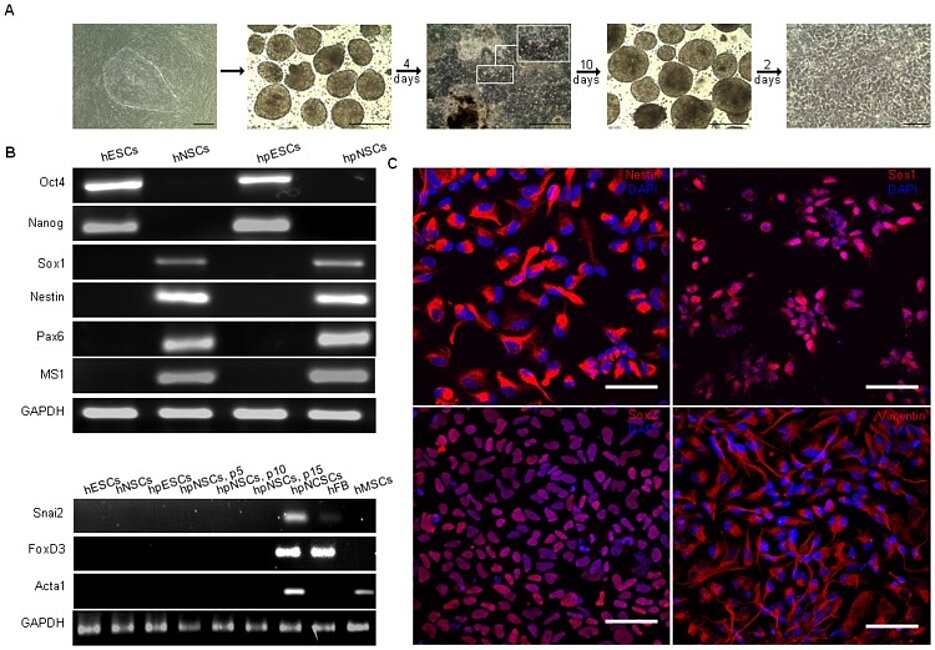Functional neuronal cells generated by human parthenogenetic stem cells
01.01.2012Ahmad R, Wolber W, Eckardt S, Koch P, Schmitt J, Semechkin R, Geis C, Heckmann M, Brüstle O, McLaughlin JK, Sirén AL, Müller AM (2012)
PLoS One 7:e42800
Parent of origin imprints on the genome have been implicated in the regulation of neural cell type differentiation. The ability of human parthenogenetic (PG) embryonic stem cells (hpESCs) to undergo neural lineage and cell type-specific differentiation is undefined. We determined the potential of hpESCs to differentiate into various neural subtypes. Concurrently, we examined DNA methylation and expression status of imprinted genes. Under culture conditions promoting neural differentiation, hpESC-derived neural stem cells (hpNSCs) gave rise to glia and neuron-like cells that expressed subtype-specific markers and generated action potentials. Analysis of imprinting in hpESCs and in hpNSCs revealed that maternal-specific gene expression patterns and imprinting marks were generally maintained in PG cells upon differentiation. Our results demonstrate that despite the lack of a paternal genome, hpESCs generate proliferating NSCs that are capable of differentiation into physiologically functional neuron-like cells and maintain allele-specific expression of imprinted genes. Thus, hpESCs can serve as a model to study the role of maternal and paternal genomes in neural development and to better understand imprinting-associated brain diseases.


